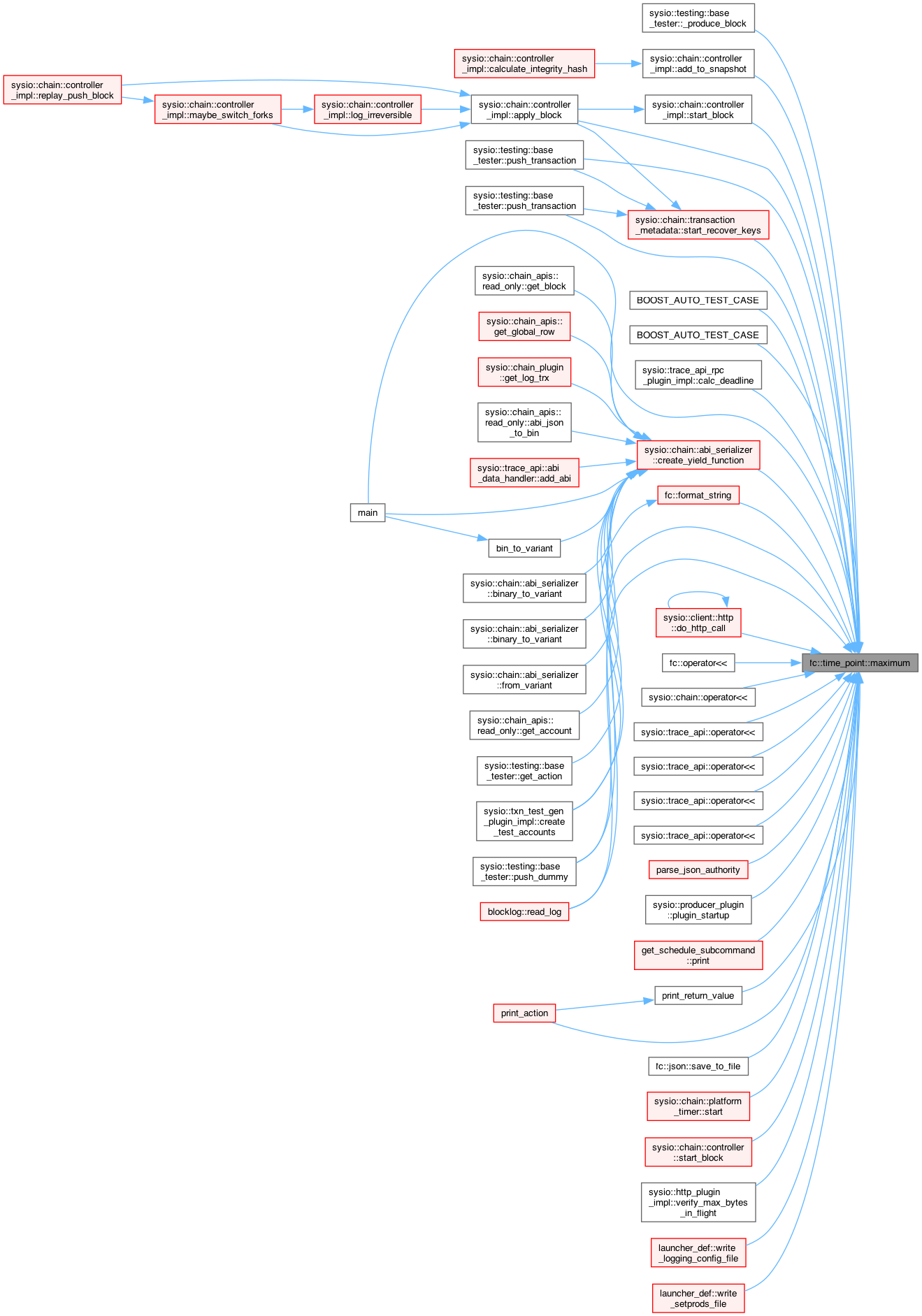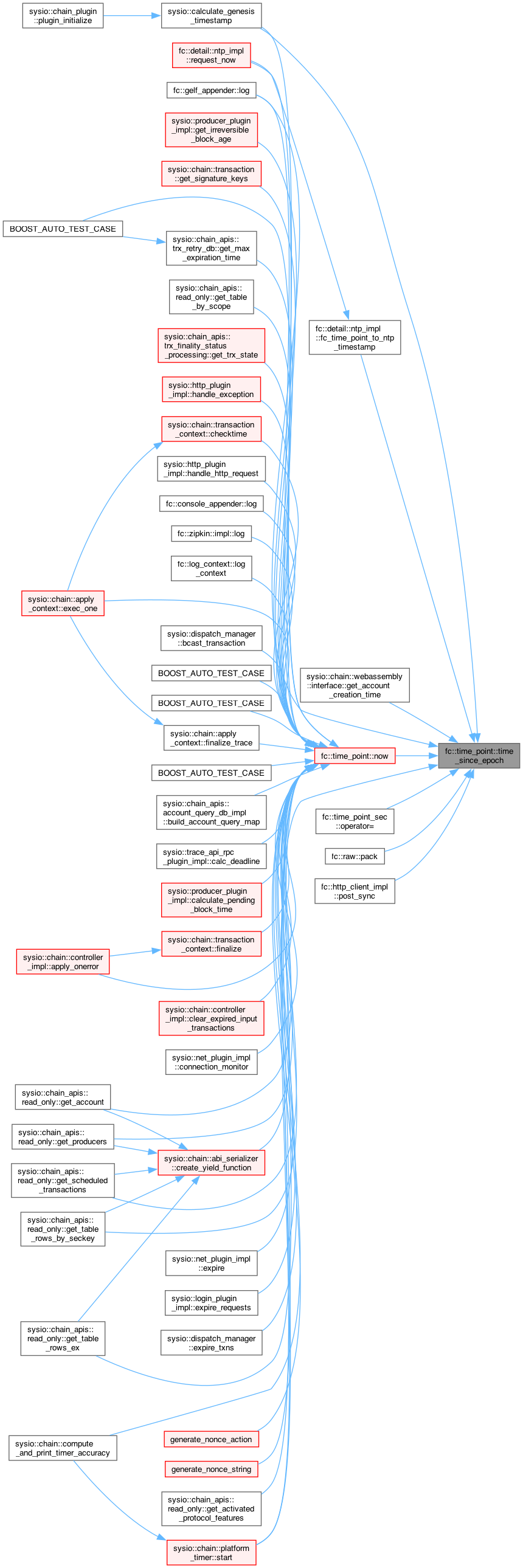Loading...
Searching...
No Matches
fc::time_point Class Reference
#include <time.hpp>
Public Member Functions | |
| constexpr | time_point (microseconds e=microseconds()) |
| operator fc::string () const | |
| constexpr const microseconds & | time_since_epoch () const |
| constexpr uint32_t | sec_since_epoch () const |
| constexpr bool | operator> (const time_point &t) const |
| constexpr bool | operator>= (const time_point &t) const |
| constexpr bool | operator< (const time_point &t) const |
| constexpr bool | operator<= (const time_point &t) const |
| constexpr bool | operator== (const time_point &t) const |
| constexpr bool | operator!= (const time_point &t) const |
| constexpr time_point & | operator+= (const microseconds &m) |
| constexpr time_point & | operator-= (const microseconds &m) |
| constexpr time_point | operator+ (const microseconds &m) const |
| constexpr time_point | operator- (const microseconds &m) const |
| constexpr microseconds | operator- (const time_point &m) const |
Static Public Member Functions | |
| static time_point | now () |
| static constexpr time_point | maximum () |
| static constexpr time_point | min () |
| static time_point | from_iso_string (const fc::string &s) |
Detailed Description
Constructor & Destructor Documentation
◆ time_point()
|
inlineexplicitconstexpr |
Member Function Documentation
◆ from_iso_string()
|
static |
Definition at line 67 of file time.cpp.
68 { try {
70 if( dot == std::string::npos )
72 else {
74 ms[0] = '1';
75 while( ms.size() < 4 ) ms.push_back('0');
77 }
static time_point_sec from_iso_string(const fc::string &s)
Definition time.cpp:39
#define FC_RETHROW_EXCEPTIONS(LOG_LEVEL, FORMAT,...)
Catchs all exception's, std::exceptions, and ... and rethrows them after appending the provided log m...
Definition exception.hpp:505
Here is the call graph for this function:
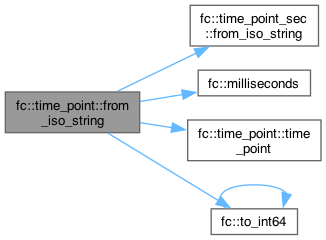
Here is the caller graph for this function:
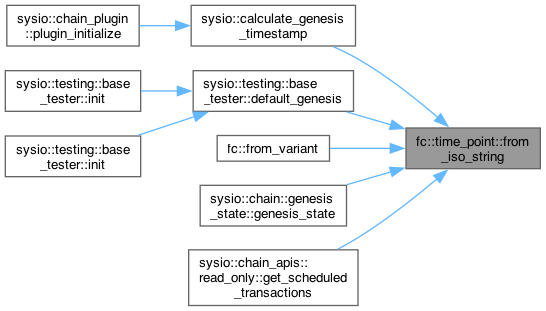
◆ maximum()
|
inlinestaticconstexpr |
◆ min()
|
inlinestaticconstexpr |
◆ now()
|
static |
Definition at line 14 of file time.cpp.
15 {
18 }
19 return time_point( microseconds( bch::duration_cast<bch::microseconds>( bch::system_clock::now().time_since_epoch() ).count() ) );
20 }
constexpr const microseconds & time_since_epoch() const
Definition time.hpp:52
Here is the call graph for this function:
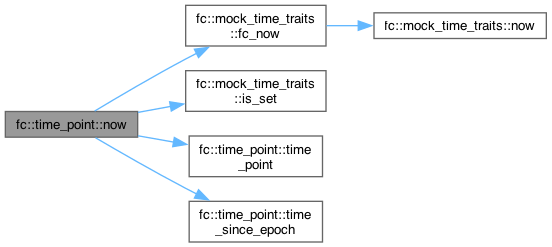
◆ operator fc::string()
| fc::time_point::operator fc::string | ( | ) | const |
Definition at line 50 of file time.cpp.
51 {
57 const auto ptime = boost::posix_time::from_time_t(time_t(secs));
58 return boost::posix_time::to_iso_extended_string(ptime) + "." + padded_ms;
59 } else {
60 // negative time_points serialized as "durations" in the ISO form with boost
61 // this is not very human readable but fits the precedent set by the above
63 return boost::posix_time::to_iso_string(as_duration);
64 }
65 }
Here is the call graph for this function:

◆ operator!=()
|
inlineconstexpr |
◆ operator+()
|
inlineconstexpr |
◆ operator+=()
|
inlineconstexpr |
◆ operator-() [1/2]
|
inlineconstexpr |
◆ operator-() [2/2]
|
inlineconstexpr |
◆ operator-=()
|
inlineconstexpr |
◆ operator<()
|
inlineconstexpr |
◆ operator<=()
|
inlineconstexpr |
◆ operator==()
|
inlineconstexpr |
◆ operator>()
|
inlineconstexpr |
◆ operator>=()
|
inlineconstexpr |
◆ sec_since_epoch()
|
inlineconstexpr |
◆ time_since_epoch()
|
inlineconstexpr |
The documentation for this class was generated from the following files:


